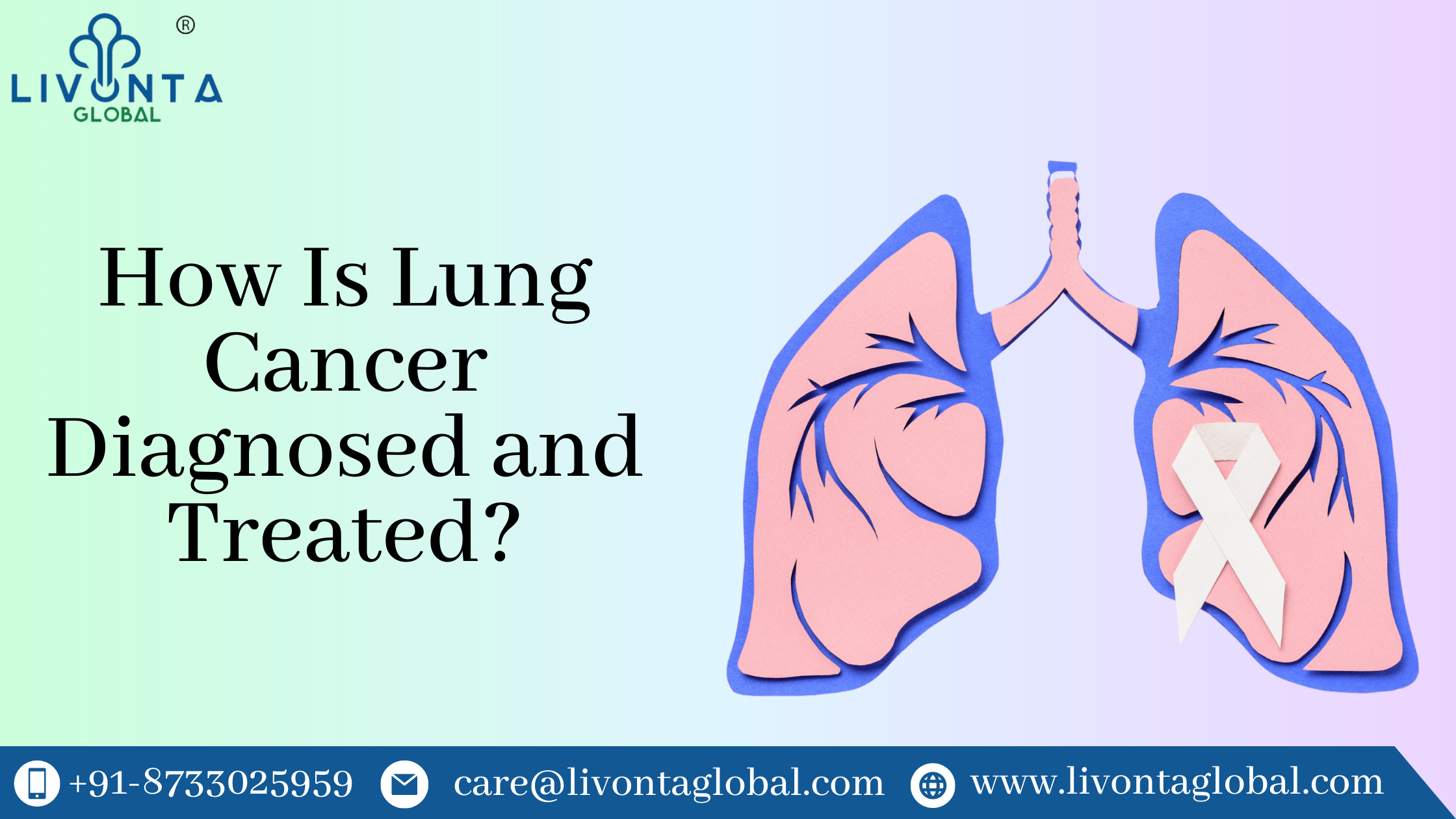For lung cancer to be successfully treated, early detection is one of the most important steps. Imaging scans and biopsies are two diagnostic ways that assist in confirming the existence of cancer. Cancer treatment in India offers a number of choices including surgery, radiation therapy, chemotherapy, targeted therapy, and immunotherapy – all depending on how the patient is and at which stage of the cancer. The cancer stage, the patient’s general health, and particular genetic abnormalities all have a role in the therapy decision. Individuals who are at risk or exhibiting symptoms should consult with medical specialists to ensure prompt diagnosis and effective treatment. Lung cancer is a serious condition that affects millions of people worldwide. Early detection can better the prognosis and survival rates of individuals with lung cancer.
Let’s find out the various diagnostic methods used to detect lung cancer and the various treatment options available for patients.
The different ways of diagnosis
Imaging tests: Imaging techniques such as X-rays, computed tomography (CT) scans, and magnetic resonance imaging (MRI) are commonly used to identify abnormal masses or nodules in the lungs.
Biopsy: If an abnormality is found, a biopsy is typically performed to confirm the presence of cancer. During a biopsy, a small tissue sample is obtained from the lung either through a bronchoscopy (using a thin tube with a camera) or a needle biopsy guided by imaging techniques. The sample is then examined under a microscope to determine the presence and type of cancer cells.
Molecular testing: In cases where lung cancer is confirmed, molecular testing may be conducted to identify specific genetic mutations or biomarkers. This information helps in selecting targeted therapies that can be more effective in treating certain types of lung cancer.
What are the different treatment methods available?
Surgery: Many doctors recommend going for surgery in the early stage of lung cancer. This is only possible when the tumor is localized and has not spread to other parts of the body. The surgical procedure can involve removing a portion of the lung (lobectomy), the entire lung (pneumonectomy), or a small tumor along with surrounding tissue (wedge resection).
Radiation therapy: This treatment is about using high-energy X-rays or other forms of radiation to destroy cancer cells. It can be administered externally (external beam radiation therapy) or internally (brachytherapy) by placing radioactive material near the tumor. Radiation therapy may be used before surgery to shrink tumors or after surgery to eliminate any remaining cancer cells.
Chemotherapy: Chemotherapy involves the use of powerful drugs that can kill cancer cells throughout the body. It is often used in combination with surgery or radiation therapy. It is either administered orally or intravenously. And, this is effective in treating both early-stage and advanced lung cancer.
Targeted therapy: Targeted therapy is a type of treatment that specifically targets genetic mutations or proteins present in cancer cells. It blocks the growth and spread of cancer by interfering with specific molecules involved in tumor development. Targeted therapy is typically used for advanced-stage lung cancer with specific genetic abnormalities.
Immunotherapy: Immunotherapy stimulates the body’s immune system to recognize and attack cancer cells. It uses drugs that help the immune system identify and destroy cancer cells more effectively. The process has given hopeful results in treating certain types of lung cancer, particularly those with high levels of specific biomarkers
Choosing the right treatment
Making the correct treatment choice for you might be challenging. Discuss the treatment choices with top oncologists providing the best cancer treatment in India. The risks, advantages, and side effects of each treatment can be discussed with your doctor. Your body’s response to medications or other therapies is known as a side effect.

Leave a Comment